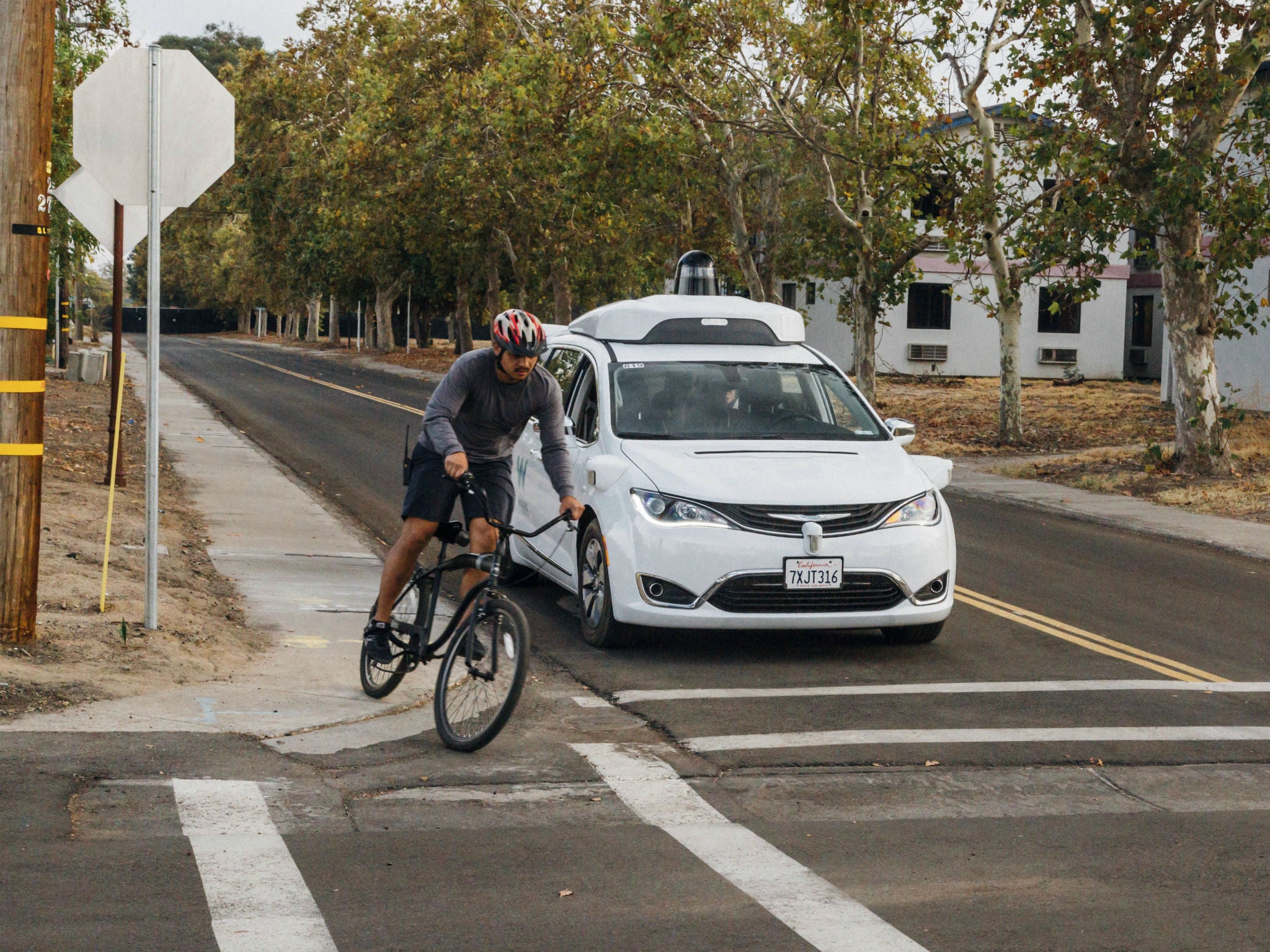America's first ever fleet of self-driving cars hits the road
For the first time, autonomous cars will function without backup drivers

The driver-less future of transportation could be arriving soon in Phoenix.
Autonomous vehicle company Waymo, a division of Google’s parent company Alphabet, has launched a fleet of self-driving cars without backup drivers in Arizona. The company’s chief executive John Krafcik said customers will soon be able to hop rides.
“Fully self-driving cars are here”, Mr Krafcik said during a tech conference in Lisbon, Portugal, lauding the development as “a big step forward to achieving our ultimate goal: safer roads, and better access to transportation for all”.
According to Waymo, some cars that have already been plying roads in the Phoenix area have now been switched to fully automatic mode — meaning there is no test driver behind the wheel. The company said it is removing that safeguard after its autonomous vehicles have test-driven some 3.5 million miles.
Residents who have already participated in a test-riding program will soon be able to hitch rides in the fully driver-bereft vehicles, Mr Krafcik said.
“Since the beginning of this year, our early riders have been using our fleet — with a test driver at the wheel — to go to work, school, soccer practice and more”, Mr Krafcik’s prepared remarks read. “Soon, they’ll be able to make these trips in a fully self-driving car, with Waymo as their chauffeur”.
In time, Mr Krafcik said, those cars would function as a new ride-hailing service. With a tap of their phones, people will be able to summon “our fleet on-demand vehicles to do anything from commute to work, get home from a night out, or run errands.
With numerous companies clamoring to conquer the burgeoning autonomous vehicle market — among them both Silicon Valley firms like Waymo and manufacturers like BMW, Honda and Ford — the change unveiled by Mr Krafcik could help Waymo separate from the pack.
Waymo is not the first company to test its driverless cars on public roads. Vehicles developed by rival Uber — which is locked in a bitter legal fight with Waymo over the technology — has covered more than a million miles and allowed Pittsburgh residents to hitch rides in autonomous vehicles spinning through the Pennsylvania city's streets.

But those tests typically require a human driver to be present and take over in case there is an emergency. Waymo engineers switched test-driving cars off of autonomous mode 124 times in California last year, according to data submitted to California, down from 341 times in 2015. The most common reasons cited were a “software discrepancy” and “unwanted maneuver of the vehicle”.
As driverless car technology rumbles toward reality, policymakers have been working to catch up. The House of Representatives recently passed a bill to set rules for the new industry, and California’s Department of Motor Vehicles moved last month to allow companies to test self-driving cars without humans riding along.
Join our commenting forum
Join thought-provoking conversations, follow other Independent readers and see their replies
Comments
Bookmark popover
Removed from bookmarks